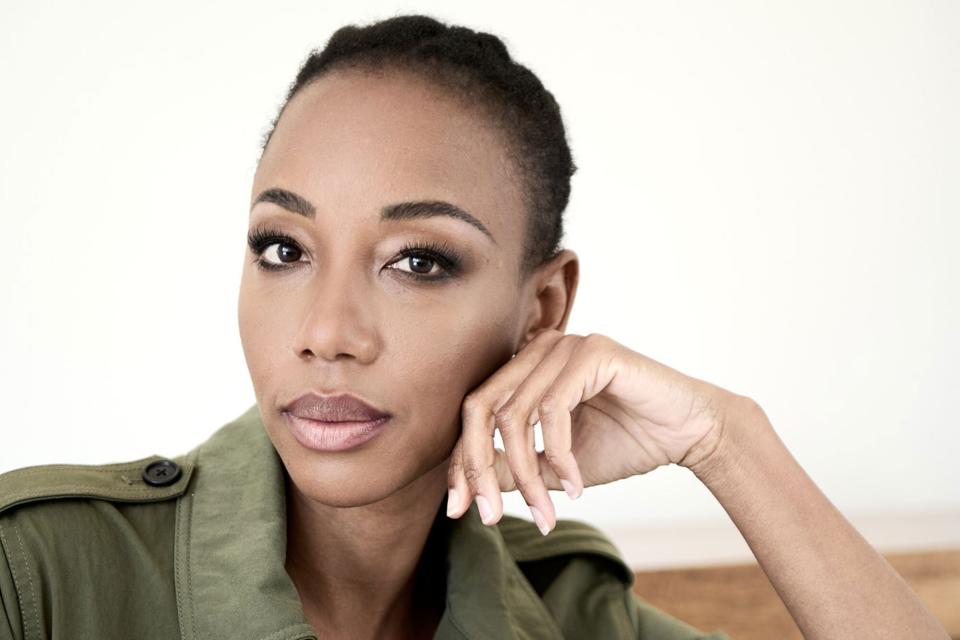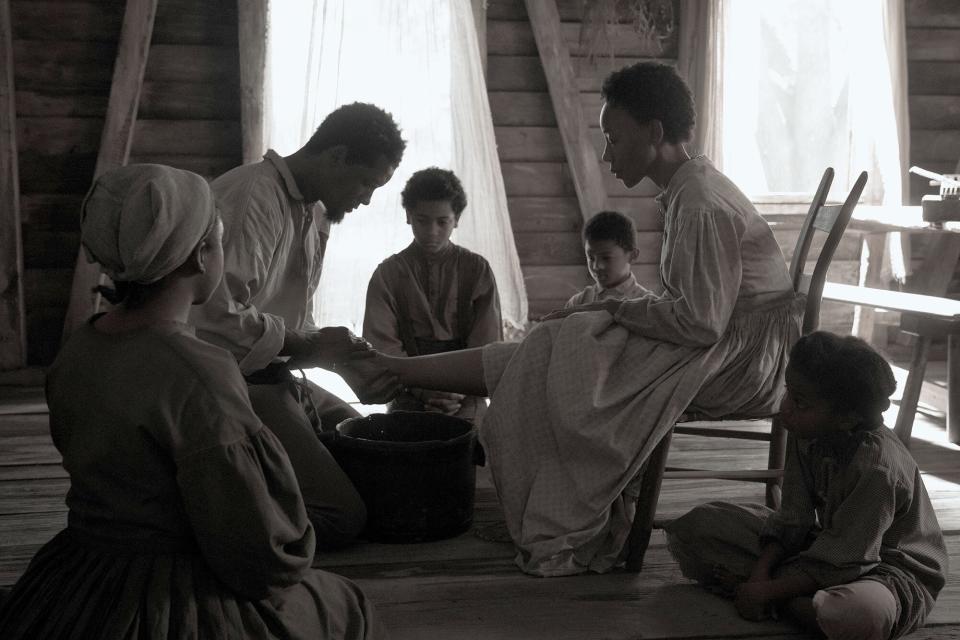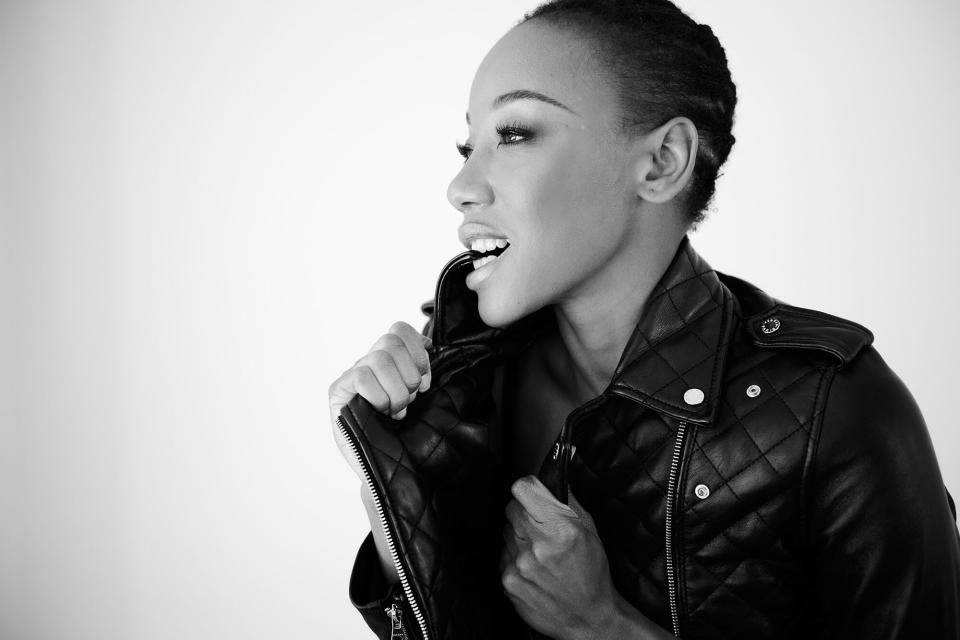Emancipation costar Charmaine Bingwa: 'I don't think it's trauma porn'
- Oops!Something went wrong.Please try again later.
- Oops!Something went wrong.Please try again later.
- Oops!Something went wrong.Please try again later.
Until a month ago, Charmaine Bingwa was best known to American audiences for her role in the critically acclaimed political drama The Good Fight. Bingwa plays Carmen Moyo, a lawyer for an all-Black Chicago law firm who uses her bold attitude and intelligence to make the law and politics work for her clients (who happen to be some pretty terrible people) — and for herself.
The Australian-born actress now makes her film debut in director Antoine Fuqua's Civil War-era drama Emancipation (streaming on Apple TV+). Inspired by the true story of enslaved man Gordon (Will Smith), who came to be called Peter, the film follows his terrifying and courageous journey, escaping from a ruthless slave owner (Ben Foster), joining an all-Black platoon to fight in the war, and becoming an emblem of the horrors of slavery through the infamous 1863 "Whipped Peter" photograph — all to make it home to his children and wife, Dodienne (Bingwa), and to freedom.
"I'm drawn to these stories where I get to find more parts of myself," Bingwa says over a recent Zoom interview. After doing press for Emancipation, she is heading back to South Africa to continue to work on King Shaka, a series that takes place in 19th-century South Africa and the unlikely rise to power of Zulu chief Shaka. "Growing up as a Black person in Australia — it's a beautiful country, but there are not a lot of things or people who look like me reflected back at me, so I have the strongest yearning to find out more about my ancestral lineage and heritage."

Courtney McAllister
Speaking to EW, Bingwa reflects on why she joined Emancipation, portraying Black motherhood during the slavery era, and how she felt after watching Will Smith at the Oscars and the "Slap."
ENTERTAINMENT WEEKLY: I know you're not an American by birth, but what were your thoughts after reading the script, and what was it that made you decide to be part of it?
CHARMAINE BINGWA: I loved and could see the challenge in the script. Maybe I'm a bit crazy because I'm the person who tends to run toward the fire, not away from it. So even though it was a difficult role, I was like, I want to be a part of that. America is such a global leader. I feel like there's really a flowing effect from what happens to America to what happens to the rest of the world. Unfortunately, racism and slavery have such deep, long roots that affect every part of everything.
It's interesting being part of the Black diaspora — I was born in Australia and, at the moment, I'm working in South Africa. I get to see the nuance of how Black people are marginalized all around the world. Unfortunately it's a global problem. I wish we were exempt in other countries. Being a person of color, being a queer person, there's something in my DNA that just wants to bat for the marginalized and help us claim our place, and help us get our stories told.
Director Antoine Fuqua doesn't spare us from the brutality of this story, while many other filmmakers, including Till's Chinonye Chukwu, elect to avoid submitting viewers to excessive pain. Can you talk about working with him and developing that part of your character's story?
I completely understand that view. There's a resistance to stories that have a lot of trauma in them. For me, it's a journey of survival and a reminder of the strength that we have inside of ourselves, our ability to overcome, and the importance of love and family as a driving force. The violence was just a fact of that period, but I don't think it's trauma porn or anything like that. I think it's necessary to tell the story and really honor the people who actually went through this. These are some of the most horrific stories you can hear about things that happened to a human being, but I didn't have to live through it. Anything I felt pales in comparison to the people who actually went through it — they need to be honored. I know people resist it a lot, but my feeling is that four million Black Americans were enslaved and went through these things on a daily basis. The least we can do is watch it.

Quantrell Colbert/Apple TV+
We don't often see that specific portrayal of motherhood — what enslaved Black women had to do to protect their children, and the sacrifices they made.
For their children. For their family. It was a heavy load. I feel like in the movie there's not a single light scene for Dodienne. It's extremely heavy lifting and it was really important for me to get that mother's perspective in there. In many respects, I felt like I was fighting for Black women to be seen and heard in this film, because not only did the women do the same amount of physical labor as the men, but they had to go home and make sure that their household was cared for, that their children and their husbands were fed, and mend clothes, and stay up all hours, and then get up before the sun rose, and do it again. They faced a lot of sexual exploitation from slave owners, and then, at the end of the day, their families could be torn apart. And still, they would give of themselves to make sure their families were okay.
For me it was more important for me to put myself in that place so it was truthful. I read an enslaved narrative, and that was a primary source of my research. History books have a weird way of making it feel abstract and they take away the humanity of people, so I wanted to hear from people's personal experience. I read a story of a woman who was beaten so badly that her jaw would never open again, she was never able to eat solid foods, and she was physically maimed. I woke up the next day and my jaw wouldn't move. I panicked and my ear was blocked, and my ear stayed blocked for six weeks. I have an amazing team that got me through six weeks of intense physical therapy to help open up my jaw again. It does imprint on you in a deep way, but it doesn't compare to the things that imprinted on the people who actually went through it.
Did you, Will Smith, and Ben Foster ever have a moment where you discussed why it was important to keep going? I'm sure there were days where it was like, "This is a lot to handle."
I know that Ben and Will went into it very seriously. A lot of the time they stayed in character and didn't talk to each other, to help fuel the story. We all knew it was going to be difficult, but once we signed on, there was no looking back and we were just in. And I have to give praise to Will because he is such a great leader in that sense. He's a producer on the film as well, and he lost so much weight to physically prepare for it. He was the one in the mud in the swamp really taking the physical brunt of things. I think the way he approached it and his commitment just communicated to everyone the level that we were going for with this film.

Courtney McAllister
What was going through your head when you saw what Smith did at the Oscars? What did you feel seeing that, and did you think it would affect your career to be associated with Emancipation or with him?
The film's in the can at this point. I was working on The Good Fight, so I had an early start, like 5 a.m. or something, so I didn't watch the show. But when I woke up, there were a lot of messages on my telephone. I didn't watch the clip until later. My feeling is I got to know Will and he did nothing but display kindness, generosity, and his great artistic talent with me, so I knew that wasn't Will's nature. I knew that wasn't the core of who Will was, and I think it was probably more painful for him to go through. But I knew how special our film was, and how since Day 1, Apple just believed in this film. I knew Will was on his own journey with how he was going to reckon with himself and return to public life. But it's just such a powerful film. I didn't despair, I just knew that the message would transcend any other noise around it.
How do you hope audiences receive the film? Do you think it will start a dialogue?
I think something kismet happens sometimes, when films come out and what's going on in the world. And with Emancipation, I think freedom's sadly been called into question in many places around the world. We're seeing what's going on in Ukraine. We're seeing what's happening in Iran. We're seeing democracy being questioned. We're just in times where I think people are a little bit more divided than we ever have been for a while.
It's a reminder of what can happen when we revert to dehumanizing each other, and hate speech, and having these ideologies that don't see the humanity in your fellow human. It's also a reminder that love is the connecting force that drives us all. Love is the main experience of why we're here.
Want more movie news? Sign up for Entertainment Weekly's free newsletter to get the latest trailers, celebrity interviews, film reviews, and more.
Related content:
